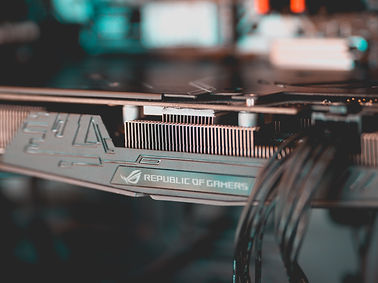CLC | Computer Liquidation Center


Custom Builds
Building custom gaming computers is a blend of technical challenge and creative fun, as it involves selecting and assembling a combination of components like the CPU, GPU, RAM, and cooling systems to achieve optimal performance. This process requires understanding compatibility and performance specifications, which adds complexity as each choice affects the machine’s capabilities. Beyond technical considerations, building a custom gaming PC offers personalization options in terms of aesthetics, from RGB lighting to sleek case designs. Let us create a system tailored to your unique gaming needs and preferences!

CPU
The CPU (Central Processing Unit) acts as the "brain" of the computer, handling all primary processing tasks. Choosing a CPU for a gaming PC involves balancing core count and clock speed, as these influence how well the system handles complex games and multitasking. Popular options include Intel and AMD processors, with high-end models offering excellent performance for demanding games and applications.
MEMORY
RAM (Random Access Memory) is essential for fast data access and smooth multitasking. For gaming, 16GB is typically the minimum, while 32GB is ideal for higher-end gaming and content creation. Selecting RAM with a higher clock speed (measured in MHz) can improve performance slightly, though compatibility with the CPU and motherboard is key.


GPU
The GPU (Graphics Processing Unit) is crucial for rendering graphics, making it a top priority in gaming builds. NVIDIA and AMD dominate the market, with options ranging from budget to high-end. Higher-end GPUs offer better frame rates and support for features like ray tracing, but budget options still provide good performance for less demanding games.
COOLING
Proper cooling is vital to keep the components running efficiently and to prevent overheating. Builders can choose between air and liquid cooling; air coolers are generally simpler and cost-effective, while liquid coolers provide advanced cooling for high-performance setups. Effective cooling is essential for maintaining performance, especially when overclocking components.



